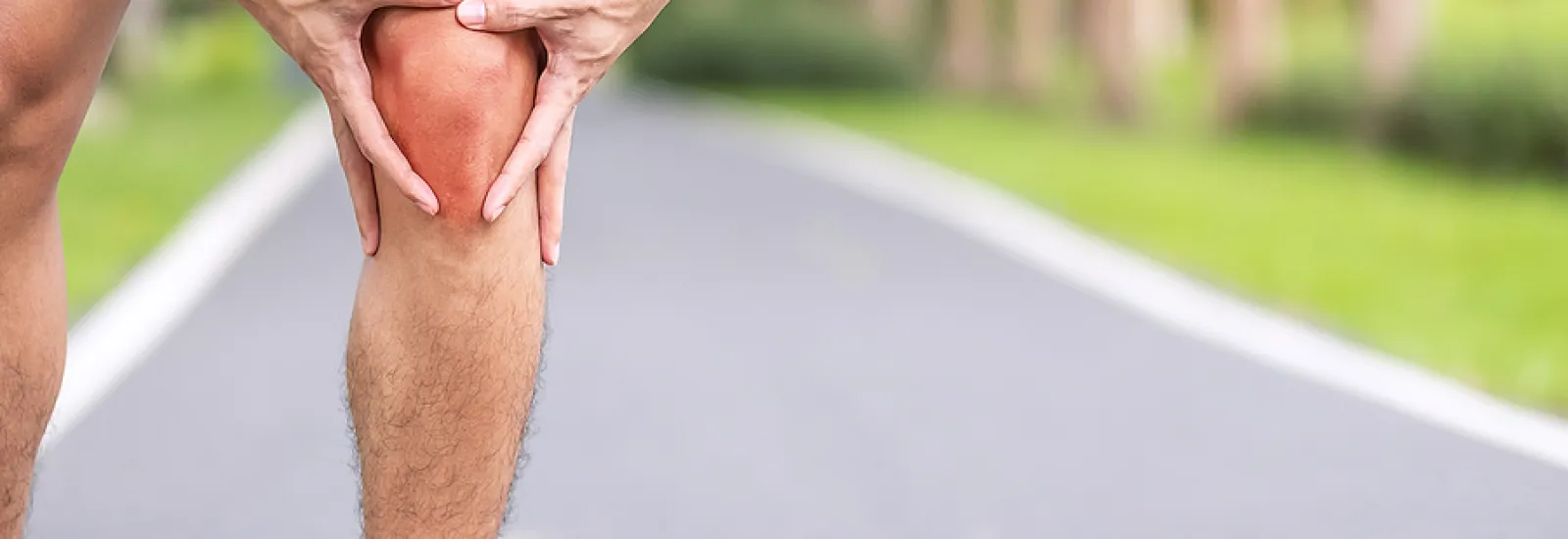
What Causes Fluid on the Knee?
The
knees are often one of the first casualties of aging, and oftentimes those
wonky joints are caused by a condition called bursitis.
What is bursitis of the knee?
In
layman's terms, bursitis of the knee occurs when a small sac of fluid (called a
bursa) gets inflamed. Bursae are like cushions that ease the friction and
pressure points between all of the connections within your body. All told,
there are more than 150 of them, with five surrounding and protecting the
knee specifically. Any (or all) of these bursae can become inflamed and cause
discomfort. Without proper remediation, that discomfort can morph into
severe pain and seriously limit your mobility.
What
causes fluid on the knee?
Typically, bursitis knee symptoms gradually present
themselves as increased tenderness and swelling in the joint. Your knee may
feel warm to the touch, and it can hurt during movements or even while at rest.
Just think about all the wear and tear your knee joint experiences over the
days and months and years. Such constant usage — especially among adults who work jobs that require repeated
kneeling and frequent joint pressure — means a higher probability of strain,
irritation and friction.
Bursitis
can also occur suddenly, like when you incur a bacterial infection of the bursa
or suffer a direct blow to the knee. The latter example is most common in
sports injuries; football, volleyball and wrestling are tough on the knees, and
long-distance runners can experience inflammation in the "pes anserine" bursa,
which is located below the joint on the inner side. Obesity, particularly in
women with osteoarthritis, also increases the risk of irritating that pes
anserine bursa.
Living
with bursitis can range from a minor annoyance to a crippling restriction. There's
been a slight uptick in cases due to a lack of general activity during the
pandemic: Many people are working from home and some are not as active as
they'd like to be, especially during those cold winter months. Whereas bursitis
usually isn't totally debilitating, it can cause older adults to find everyday
activities like walking, going up and down stairs, sitting for long periods of
time and even sleeping uncomfortable.
Will fluid on the knee go away by itself?
Without intervention, it's not likely. You can take some preventive measures to help avoid bursitis flaring up in your knees, such as maintaining a healthy weight to minimize unnecessary pressure on the joint and wearing kneepads during sports or work in order to provide an extra layer of protection. Stretching your legs and giving the knees a good rest are also keys to keeping your knee bursae healthy.
Taking
a mild anti-inflammatory or treating your knees with ice packs (or a bag of
frozen vegetables) for 20 minutes a few times a day can significantly reduce
swelling and inflammation. Knee braces and sleeves also provide valuable joint
support and keep swelling down. It's wise to avoid putting undue pressure on
the knees while you sleep, so try not to lie directly on the affected leg and
instead prop the leg up if possible. And if you're among the majority of adults
who sleep on their side, you can wedge a pillow between your knees to
offer additional comfort.
How should fluid on the knee be treated?
More
severe cases of bursitis require stronger treatments. Steroid injections and
fluid draining procedures are common and can be done at your doctor's office.
Physical therapy also is a good route for those who suffer persistent bursitis
of the knee. It offers patients a chance to learn effective exercises and
stretches to build up joint strength and make the area more flexible.
How long does bursitis last?
With
the right treatment, bursitis of the knee often dissipates quickly. Even when
home remedies don't work and a visit to your doctor is necessary, the swelling
and discomfort usually abate within a few weeks.
At
Reid Health Orthopedics and Spine, our family of amazing providers and specialists is committed to
your orthopedic care and comfort. If you're having trouble
managing your bursitis of the knee symptoms on your own and prefer a
consultation with any of our industry-leading practitioners, we'll be right
beside you to address your concerns and get you on the road to recovery.

